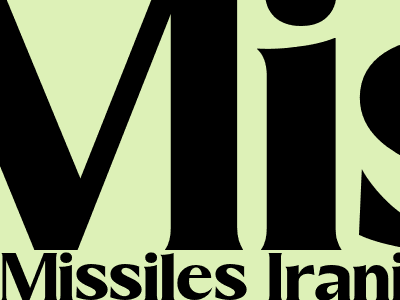
Missiles Iraniens
Iranian Missiles: A Cause for Concern
Introduction
In recent months, Iran has been involved in a number of missile tests, which have raised concerns among the international community. These tests have been condemned by the United States and its allies, who believe that they violate the terms of the Iran nuclear deal. Although Russia and China have not publicly condemned the tests, they have expressed concern about the potential for escalation. These tests come against a backdrop of heightened tensions between Iran and the United States, which have escalated since the Trump administration withdrew from the nuclear deal in 2018.
Background
Iran has a long history missiles, dating back to the Iran-Iraq War in the 1980s. In recent years, Iran has been developing increasingly sophisticated missiles, including ballistic missiles and cruise missiles. These missiles are capable of reaching targets throughout the Middle East and beyond. In 2015, Iran signed the Joint Comprehensive Plan of Action (JCPOA), also known as the Iran nuclear deal. The JCPOA was an agreement between Iran and six world powers—the United States, the United Kingdom, France, Germany, Russia, and China—that placed limits on Iran's nuclear program in exchange for sanctions relief. The JCPOA also included a provision that prohibited Iran from conducting missile tests that were capable of delivering a nuclear weapon. In 2018, the Trump administration withdrew the United States from the JCPOA, arguing that the deal was not effective in preventing Iran from developing a nuclear weapon. The Trump administration also imposed new sanctions on Iran, which have had a significant impact on the Iranian economy. Since the United States withdrew from the JCPOA, Iran has conducted several missiles tests, which have been condemned by the United States and its allies. The United States has accused Iran of violating the terms of the JCPOA, while Iran has maintained that its missile tests are not in violation of the deal.
Concerns
There are a number of concerns about Iran's missiles tests. First, the tests are seen as a violation of the JCPOA. Second, the tests could lead to an arms race in the Middle East. Third, the tests could increase the risk of a conflict between Iran and the United States or its allies. First, the tests are seen as a violation of the JCPOA. The JCPOA explicitly prohibits Iran from conducting missile tests that are capable of delivering a nuclear weapon. The United States and its allies believe that Iran's recent missile tests are in violation of this provision. Second, the tests could lead to an arms race in the Middle East. Iran's missile tests have prompted other countries in the region, such as Saudi Arabia and the United Arab Emirates, to increase their own missile programs. This could lead to an arms race in the Middle East, which could increase the risk of conflict. Third, the tests could increase the risk of a conflict between Iran and the United States or its allies. The United States has warned that it will take military action if Iran continues to conduct missile tests. This could lead to a conflict between the United States and Iran, which could have devastating consequences for the region.
Conclusion
Iran's missiles tests are a cause for concern. The tests are seen as a violation of the JCPOA, could lead to an arms race in the Middle East, and could increase the risk of a conflict between Iran and the United States or its allies. The international community must work together to address this issue and prevent it from escalating into a major conflict.
Komentar